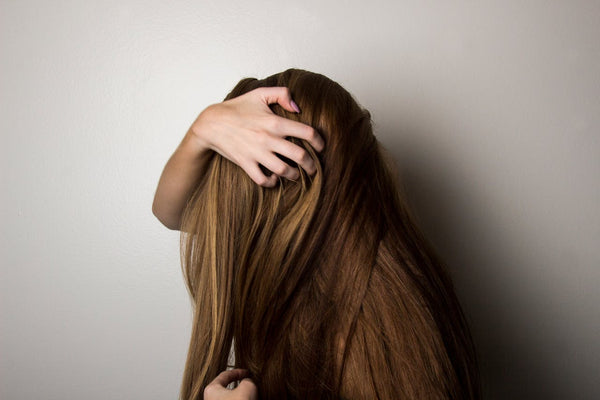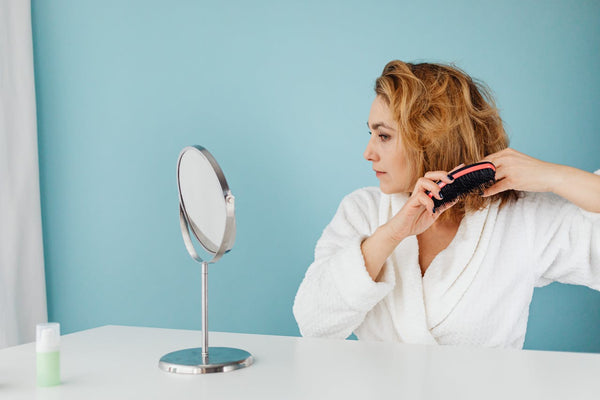How to Combat Hair Thinning and Promote Healthy Hair Growth

Understanding Hair Thinning
Hair thinning can be a distressing issue for many, affecting both men and women. While it’s common to lose about 50 to 100 hairs a day, noticeable thinning or shedding may indicate an underlying problem. The causes of hair thinning can vary from genetics to stress, hormonal imbalances, nutritional deficiencies, and even certain medications.
Understanding the root cause of your hair thinning is the first step toward addressing it. Luckily, there are numerous ways to encourage healthy hair growth and strengthen existing strands.
Common Causes of Hair Thinning
1. Genetics and Hormonal Changes
Genetic factors play a significant role in hair thinning, especially when it comes to male and female pattern baldness. Hormonal changes due to pregnancy, menopause, or thyroid imbalances can also lead to hair loss or thinning.
2. Stress and Anxiety
Prolonged periods of stress can lead to a condition known as telogen effluvium, which forces more hairs into the shedding phase. Stress can disrupt the normal hair growth cycle, leading to noticeable thinning.
3. Nutritional Deficiencies
A lack of essential nutrients, like iron, biotin, zinc, and vitamins A and D, can lead to hair thinning. Poor diet, lack of balanced meals, and restrictive eating can deprive hair follicles of the nutrients they need to grow strong hair.
4. Over-Styling and Chemical Damage
Frequent use of heat tools, chemical treatments, and tight hairstyles can weaken the hair shaft and lead to thinning. Excessive manipulation can also cause traction alopecia, a form of hair loss due to tension on the scalp.
5. Medical Conditions and Medications
Certain medical conditions, such as alopecia areata, polycystic ovary syndrome (PCOS), and scalp infections, can contribute to hair thinning. Some medications, like chemotherapy drugs or those for high blood pressure, can also result in hair loss as a side effect.
Ways to Combat Hair Thinning
1. Nourish Your Hair with Proper Nutrition
A well-balanced diet is essential for supporting healthy hair growth. Make sure you’re getting the right vitamins and minerals to nourish your hair follicles.
Key nutrients for hair growth:
- Biotin: Found in eggs, nuts, and avocados, biotin helps strengthen hair.
- Iron: Found in spinach, beans, and lean meats, iron helps carry oxygen to the hair follicles, promoting growth.
- Vitamin D: Found in fatty fish and fortified foods, vitamin D supports the creation of new hair follicles.
- Zinc: Found in pumpkin seeds, lentils, and oysters, zinc promotes hair regeneration and repair.
2. Minimize Stress
Since stress can trigger hair thinning, it’s crucial to incorporate stress management techniques into your daily routine.
Effective stress management methods:
- Yoga and meditation: These practices help reduce cortisol levels and relax the mind.
- Regular exercise: Physical activity improves circulation and promotes overall well-being.
- Deep breathing exercises: These can help reduce anxiety and stress in moments of tension.
3. Use Scalp-Stimulating Treatments
Stimulating your scalp increases blood circulation, which can encourage hair growth. Look for scalp treatments with ingredients like minoxidil, biotin, and caffeine, which are known to promote circulation and stimulate hair follicles.
DIY Scalp Massage:
- Use a natural oil like castor oil or jojoba oil.
- Gently massage the oil into your scalp for 5-10 minutes each night before bed.
- This will improve circulation, promote hair growth, and help reduce stress.
4. Avoid Over-Styling
Overuse of heat tools, chemical treatments, and tight hairstyles can damage your hair and cause it to thin.
Hair styling tips to protect your hair:
- Heat protection: Always use a heat protectant spray before using styling tools.
- Limit heat styling: Reduce the use of flat irons, curling irons, and blow dryers.
- Loose hairstyles: Opt for loose braids, ponytails, and buns to avoid putting tension on the hair follicles.
5. Consider Hair Growth Products
There are numerous products designed to support hair growth and combat thinning. Look for shampoos, conditioners, and serums containing biotin, keratin, peptides, and caffeine.
Note: Always consult your doctor or dermatologist before using products with active ingredients like minoxidil to ensure they’re safe for your specific condition.
Haircare Routine for Thinning Hair
1. Gentle Shampooing
Use a gentle, sulfate-free shampoo to cleanse your hair without stripping it of essential moisture. Harsh shampoos can damage the scalp and hair follicles, which can exacerbate thinning.
2. Hydration and Deep Conditioning
Deep condition your hair weekly to replenish moisture and strengthen the strands. Choose hydrating treatments with natural oils, proteins, and vitamins that nourish both your hair and scalp.
Recommended ingredients for deep conditioning:
- Keratin: Strengthens and rebuilds hair fibers.
- Argan oil: Provides hydration and enhances shine.
- Shea butter: Moisturizes and nourishes the scalp.
3. Leave-In Treatments
Incorporate leave-in conditioners or hair growth serums to hydrate, strengthen, and protect your hair throughout the day. These products create a protective barrier against environmental damage while helping to fortify thinning strands.
Lifestyle Changes for Healthier Hair Growth
1. Stay Hydrated
Water is vital for overall health, and hydration is especially important for your hair. Drink plenty of water throughout the day to keep your hair follicles well-nourished and hydrated.
2. Sleep on a Silk Pillowcase
Silk pillowcases create less friction than cotton, reducing the risk of breakage and split ends while you sleep. They also help retain moisture, which can prevent hair from becoming dry and brittle.
3. Consult a Dermatologist
If you’re experiencing significant hair thinning, it’s always best to consult a dermatologist or trichologist. A professional can diagnose underlying conditions and recommend appropriate treatments, whether it’s topical treatments, medications, or lifestyle adjustments.
Final Thoughts
Hair thinning can feel discouraging, but with the right approach, you can combat it and promote healthier hair growth. By nourishing your body with essential nutrients, managing stress, using the right products, and avoiding damaging habits, you can help restore the strength and vitality of your hair. Whether it’s through scalp treatments, gentle styling, or a personalized haircare routine, there are many effective ways to address thinning hair and encourage growth.
FAQ
1. Can stress cause hair thinning?
Yes, stress can lead to hair thinning through a condition called telogen effluvium, where hair follicles enter the shedding phase prematurely. Managing stress can help mitigate this.
2. How can I naturally encourage hair growth?
Eating a balanced diet with essential vitamins, massaging your scalp with nourishing oils, and minimizing hair damage through gentle styling are all effective ways to promote natural hair growth.
3. Is it safe to use hair growth products like minoxidil?
Minoxidil is generally safe for many people, but it’s important to consult with a dermatologist before use, as it may not be suitable for everyone or for certain types of hair thinning.
4. How often should I deep condition my hair?
For optimal results, deep condition your hair once a week, or more often if your hair is particularly dry or damaged.
5. Will biotin supplements help with hair growth?
Biotin is important for hair health, and supplementing with it may help promote growth, especially if you have a deficiency. However, it’s best to consult with a healthcare professional before starting any supplement regimen.



